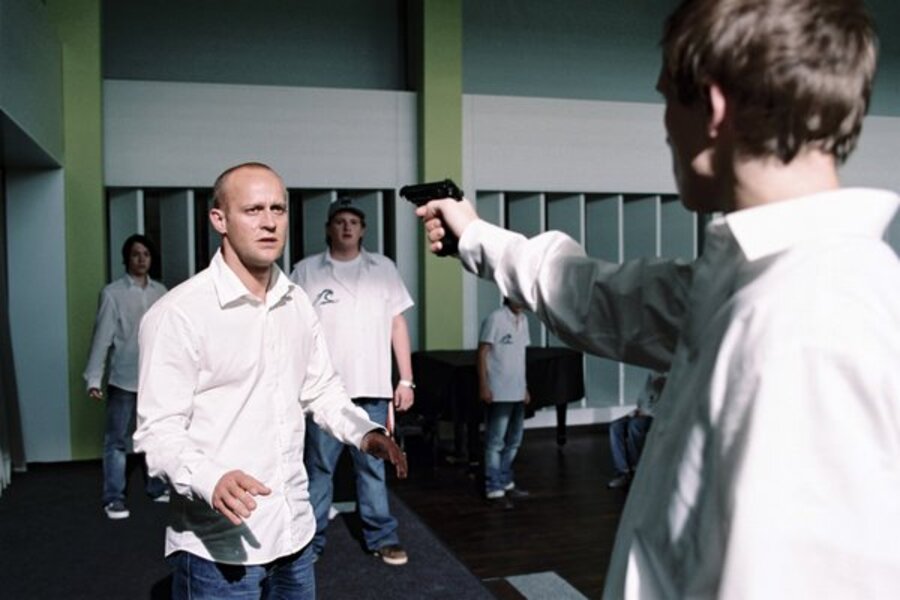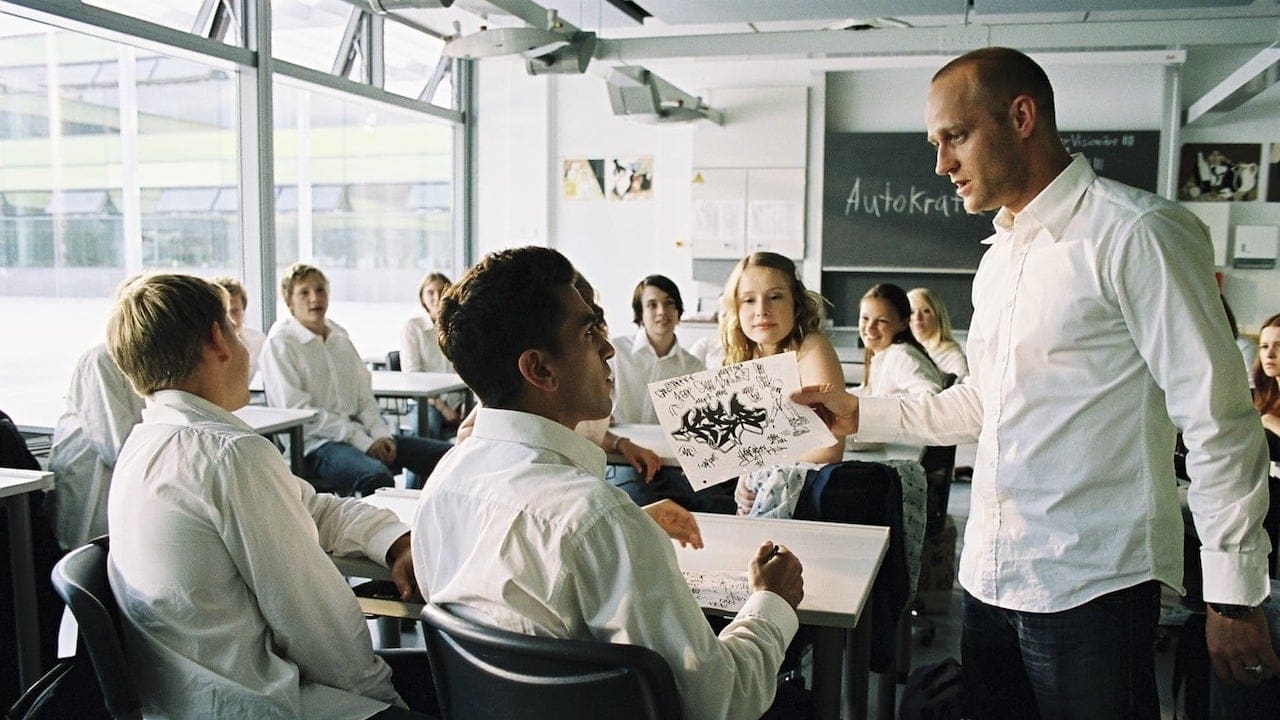The Wave (2008): A Stark Warning About Authority, Conformity, and Human Nature
The Wave (Die Welle), a German film released in 2008 and directed by Dennis Gansel, is a thought-provoking psychological drama that delves into the frightening ease with which fascism and authoritarianism can resurface, even in modern democratic societies. Based on a real-life social experiment conducted by American teacher Ron Jones in 1967, the film explores the dynamics of power, control, and group mentality through the lens of a high school classroom. With its intense performances, sharp direction, and chilling message, The Wave is a powerful educational and cinematic experience that continues to spark global conversation.
The story follows Rainer Wenger (played by Jürgen Vogel), a popular and somewhat unconventional high school teacher in Germany. During a project week on political systems, Wenger is assigned to teach autocracy—a topic he initially finds uninspiring. However, when his students insist that another dictatorship would be impossible in modern Germany, Wenger decides to conduct a week-long experiment to test that belief. He introduces a strict code of conduct, emphasizing discipline, unity, and community. Students are instructed to wear a uniform dress code, use a specific salute, and refer to the movement as “The Wave.”
What begins as a harmless social exercise quickly escalates. The students, many of whom felt invisible or powerless, become deeply invested in The Wave. It offers them identity, purpose, and belonging. Cliques dissolve, and academic engagement rises—but at the cost of individual freedom and critical thought. As Wenger’s control over the class grows, so too does the group’s willingness to follow orders blindly and punish dissenters. The experiment spirals out of control, and the consequences become dangerously real.
Jürgen Vogel delivers a compelling performance as a teacher caught between fascination and horror at the movement he inadvertently fuels. The young cast, especially Frederick Lau as the troubled student Tim, portrays the psychological shift from normalcy to fanaticism with disturbing authenticity. Tim’s transformation—from isolated outcast to devoted enforcer of The Wave’s rules—serves as one of the film’s most tragic and revealing arcs.

Visually, Gansel keeps the film grounded in realism, opting for a stark, schoolroom setting that reinforces the terrifying notion that such movements can grow anywhere, even in the most mundane environments. The editing is sharp and builds tension effectively as the tone shifts from light-hearted to ominous. The soundtrack, with a punk and rock influence, mirrors the youth-driven nature of the uprising and the volatility of its participants.
Ultimately, The Wave delivers a sobering message: no society is immune to authoritarianism. Through its shocking and emotionally charged conclusion, the film forces viewers to confront how quickly democratic values can be undermined when fear, conformity, and group identity replace individual judgment. It’s a modern parable about the fragility of freedom and the enduring relevance of history.

More than a cautionary tale, The Wave is a necessary film. It not only entertains but educates, challenging audiences to reflect on their own capacity for resistance—or compliance—when faced with the seduction of power and the comfort of belonging.
-1751870433-q80.webp)

%20vietsub.jpg)